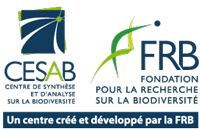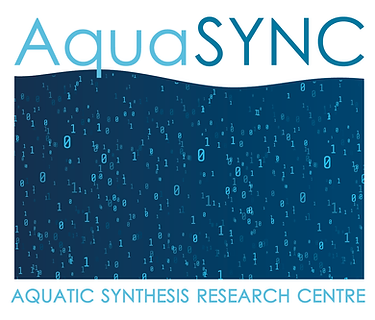Now open:
GLOBAL JOINT SYNTHESIS CALL
Interactions between Biodiversity and Climate Change
Synthesis centres are research infrastructures that enable the development of knowledge from heterogeneous information, data, theories etc. as well as multiple perspectives from diverse groups. In this distinctive position on the world research scene, synthesis centres are at the forefront of knowledge in critical areas such as Biodiversity, Environment and Climate Change. Given the global nature of the tightly linked climate and biodiversity crises, several synthesis centres around the world have joined together to synthesize knowledge linking the biodiversity and climate change crises.
What do we fund in this call?
- Synthesis proposals are invited on the interactions of biodiversity and climate change.
- Working group meetings as well as some postdoctoral fellowships are funded.
- All centres have distinct foci, project rules and deadlines. Familiarize yourself with those differences and decide for where your idea fits best.
How does it work? What is funded? Please check the websites at the participating centres.
- Working group meetings of diverse teams (according to the individual centre rules) to be held at the same centre will include
- 2-4 meetings from 2025-2028
- Travel expenses (accommodation, travel, meals, support with the logistics) & scientific support for meeting preparation
- Some postdoctoral fellowships are available as part of funded working groups (see detailed call description)
- Activities to foster cross-working-group interactions
Timing (for summary of dates check this table):
- Call open: Differs by centre (check the centre call websites)
- Full proposal deadline: Differs by centre (check centre call websites)
- Decision announced at ‘The First International Symposium on Synthesis Research in Aquatic Ecosystems’ hosted by AquaSYNC and taking place 10-12 June 2025 in Copenhagen, Denmark (details how to join tbd)
- Additional support deadlines: after working group funding decisions announced
Information material:
Participating centres & responsible contact persons for further questions:
- sDiv – Synthesis Centre for Biodiversity of iDiv – Head of sDiv Marten Winter – Marten.Winter@idiv.de
- The John Wesley Powell Center for Analysis and Synthesis – Director Jill Baron – Jill.Baron@colostate.edu
- National Center for Ecological Analysis & Synthesis (NCEAS) – Director Ben Halpern – halpern@nceas.ucsb.edu
- AquaSYNC – Leader of AquaSYNC Jesper H. Andersen – jha@niva-dk.dk
- ASCEND – Head of Team Science Farai Kapfudzaruwa – farai.kapfudzaruwa@uct.ac.za
- Institute for Global Change Biology (IGCB) – Director Peter Reich – preich@umich.edu
- Sinbiose/CNPq the Brazilian Synthesis centre on Biodiversity and Ecosystem Services – Executive Secretariat – Marisa de Araujo Mamede – mmamede@cnpq.br
- Just Transformations for Sustainability – Director Arun Agrawal [will begin in early 2025]
- Centre for the Synthesis and Analysis of Biodiversity (CESAB) – Scientific director Nicolas Mouquet – nicolas.mouquet@fondationbiodiversite.fr
- Canadian Institute for Ecology and Evolution (CIEE-ICEE) – Director Diane Srivastava ciee-icee@biodiversity.ubc.ca

Scientific synthesis* centres have become integral to research efforts in an era of increasingly complex societal and scientific problems, big data, and the knowledge economy. There are now more than a dozen synthesis centres across North America, Europe, China and Australia, spreading from their ecological origins to address the synthesis needs in biomedical sciences, mathematics, earth sciences, and genomics. Synthesis centres foster collaborative research by bringing interdisciplinary groups of specialists and experts together for an extended period of time in a collegial setting aimed at stimulating creative thinking, catalysing insight, and facilitating group learning. The centres generally provide the technological expertise to help researchers collect, analyse, and synthesise diverse and disparate datasets to address critical science questions.
With the formation of the International Synthesis Consortium (ISC) the centres took a step forward to work and collaborate more closely. The ISC is a global network of centres that collectively have decades of accumulated knowledge and demonstrated success in bringing synthesis to bear solving complex problems. We envision an expanding network that meets the growing need for synthesis research in all corners of the globe and facilitates the participation of stakeholders from the public, private and community sectors. The ISC will work in the upcoming years to foster global efforts to tackle grand challenges in science by collaborations across centres.
* the extraction of otherwise unobtainable insight from a combination of disparate elements (Sidlauskas et al., 2009)
See a map showing synthesis centres, or view a list of synthesis centres
Why a synthesis centre?
In today’s world, the amount of information and data can be quite daunting, and for us to make good decisions, we need to create wisdom out of the cacophony of material available. Synthesis Centres do not sponsor new field or lab investigations, but support the analysis of existing data to answer cutting edge scientific questions.
This collaborative approach has an excellent track record of producing innovative and widely cited outcomes, and in creating a culture of interdisciplinary and trans-organisational collaboration.
The communities that each synthesis centre has developed are very powerful: the networks of experts and the collective knowledge are second to none. The purpose of the International Synthesis Consortium is to facilitate linkages between research efforts, share best practices to improve the effectiveness of each centre, assist new centres as they come on-line, and archive the research and data legacy of those centres that reach the end of their funding, for the benefit of all. Our partners are skilled in facilitating science synthesis and many of today’s major issues will benefit from a concerted collaborative approach.
Reference
Sidlauskas B., Ganeshkumar G., Hazkani-Covo E., Jenkins K.P., Lapp H., McCall L.W., Price S., Scherle R., Spaeth P.A. and Kidd D.M. (2009) Linking big: the continuing promise of evolutionary synthesis. Evolution 64(4): 871-880.
A listing of synthesis centres and other organisations of interest
Centres are ordered by the date they opened, oldest to newest.
| Centre | Location (host) | Scope |
|---|---|---|
| The hub for Human Evolution Research Synthesis (HEIRS) | Faro, Portugal (Universidade do Algarve) | Human evolution |
| African Synthesis Centre for Climate Change, Environment and Development (ASCEND) | Rondebosch, South Africa (University of Cape Town) | Climate change, climate impact mitigation |
| Aquatic Synthesis Research Centre (AquaSYNC) | Copenhagen, Denmark (NIVA Denmark Water Research) | Aquatic biodiversity, systems ecology, integrated assessments, assessment tools |
| The Brazilian Synthesis Center on Biodiversity and Ecosystem Services (SinBiose) | Brasília, Brazil | Biodiversity and ecosystem services |
| The Synthesis Centre for Biodiversity Sciences (sDiv) | Leipzig, Germany (German Centre for Integrative Biodiversity Research (iDiv)) | Biodiversity sciences and management |
| National Socio-Environmental Synthesis Center (SESYNC) | Annapolis, Maryland, USA (University of Maryland) | Ecology, sociology, political science, economy, psychology, policy making, planning and design |
| Centre for the Synthesis and Analysis of Biodiversity (CESAB) | Aix-en-Provence, France (Foundation for Research on Biodiversity) | Biodiversity sciences, ecology |
| John Wesley Powell Center for Analysis and Synthesis | Fort Collins, Colorado, USA (United States Geological Survey) | Earth and environmental sciences |
| Canadian Institute of Ecology and Evolution (CIEE/ICEE) | Saskatchewan, but operations distributed throughout Canada (University of Regina) | Canadian ecosystems and their services |
| National Institute for Mathematical and Biological Synthesis (NIMBioS) | Knoxville, Tennessee, USA (University of Tennessee) | Interface between biology and mathematics |
| Centre for Ecological and Evolutionary Synthesis (CEES) | University of Oslo, Norway | Evolutionary changes on ecology through population biology, statistical and mathematical modelling and genomics |
| National Center for Ecological Analysis and Synthesis (NCEAS) | Santa Barbara, California, USA (University of California) | Ecology, environmental sciences |
| Chinese Ecosystem Research Network (CERN) | Beijing, China (Chinese Academy of Science) | Ecology |
| Environmental Data Science Innovation & Inclusion Lab (ESIIL) | Boulder, CO, USA (University of Colorado) | Environmental data synthesis |
| Institute for Global Change Biology (IGCB) | Ann Arbor, MI, USA (University of Michigan) | Interdisciplinary global change research |
Australian Centre for Ecological Analysis and Synthesis (ACEAS) [discontinued] | Brisbane, Queensland, Australia (Terrestrial Ecosystem Research Network, University of Queensland) | Ecosystem science, management and policy |
National Evolutionary Synthesis Center (NESCent) [discontinued] | Durham, North Carolina, USA (Duke University, North Carolina State University, and the University of North Carolina at Chapel Hill) | Evolutionary biology, ecology |
Tansley Working Groups [discontinued] | London, UK (Imperial College) | Biodiversity and resource management |
Environmental Omics Synthesis Centre (EOS) [discontinued] | Wallingford, Oxfordshire, UK (Centre for Ecology and Hydrology) | Environmental ‘omics’ and bioinformatics |















